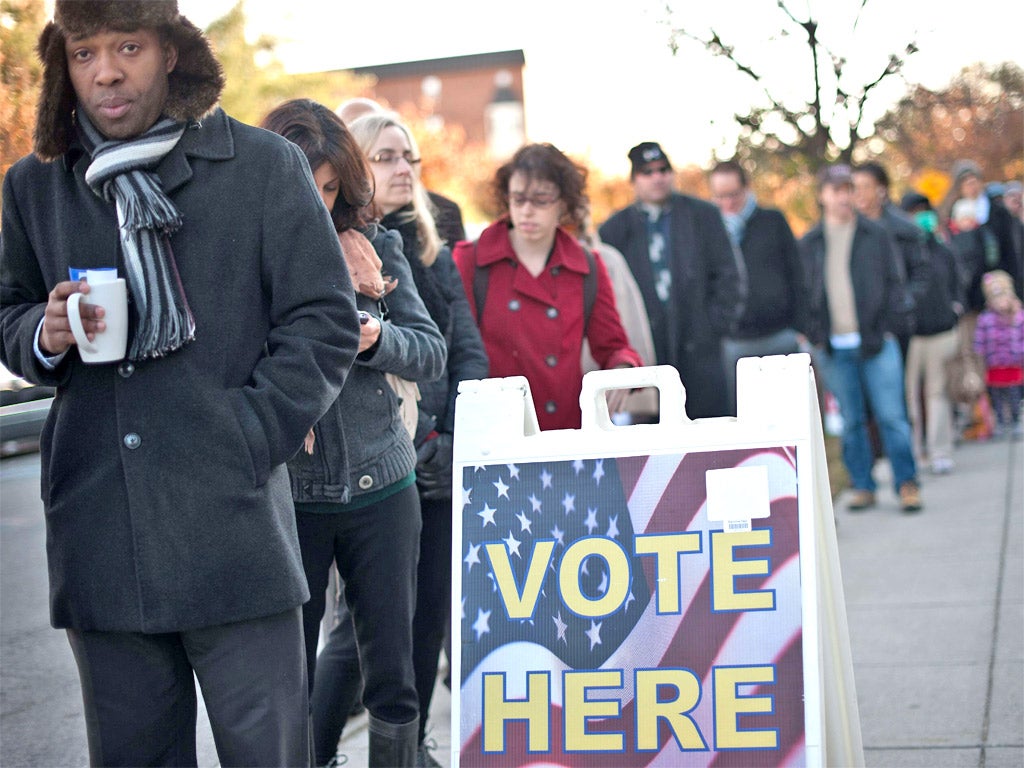Swings and roundabouts: how a divided nation voted
Exit polls suggest that traditionally marginalised groups played a crucial role in Obama's victory

Shifting demographic realities shunted the 2012 election towards Barack Obama; no longer can a candidate hope to win an election simply by appealing to the white male demographic.
In 2000, George W Bush won the election with 60 per cent of the white male vote. In 2012 Mitt Romney lost the election with 60 per cent of that same demographic. To win in the future one must cobble together a multi-ethnic, multi-generational coalition of diverse voters.
The American population is growing more diverse by the day. New efforts to engage with traditionally marginalised groups such as Latino, Asian and black voters are now paths to victory. The impact of shifting demographic realities has been touted for decades; now this shift is a reality. Obama has turned what might have been a resounding defeat into a comfortable victory by understanding how to interact with these groups.
Examining the exit poll data, it is clear that Obama's team built on their 2008 success. Data indicates that Obama increased his proportion of the Latino electorate from 67 per cent to 71 per cent. The black vote actually declined by two points to 93 per cent, but what really matters are the raw numbers of those added to the electorate. The Latino group has increased due to voting registration efforts and natural integration. The black and Latino groups were not pandered to; they were engaged on the issues most important to them – jobs and the economy. Romney's efforts didn't help matters; perhaps it was not the brightest idea to encourage one of the most important demographic groups to self-deport to Latin America.
It is also interesting to observe the increase in support of the Asian population: 73 per cent came out in Obama's favour, up 11 per cent. It was also thought that women were breaking towards Romney, but it turns out that Obama once again captured the female vote, holding almost steady at 55 per cent. The likely cause of these positive developments seems to be great care in attracting typically marginalised populations to Obama.
The Democrats read the research that suggests that personal engagement can increase turnout and support for a candidate. The Republican Party failed with a focus on old canvassing methods. The results will be recognised for their reflection of a changing country no longer capable of ignoring marginalised groups.
Brandon Valeriano is a lecturer at the University of Glasgow
Join our commenting forum
Join thought-provoking conversations, follow other Independent readers and see their replies
Comments
Bookmark popover
Removed from bookmarks